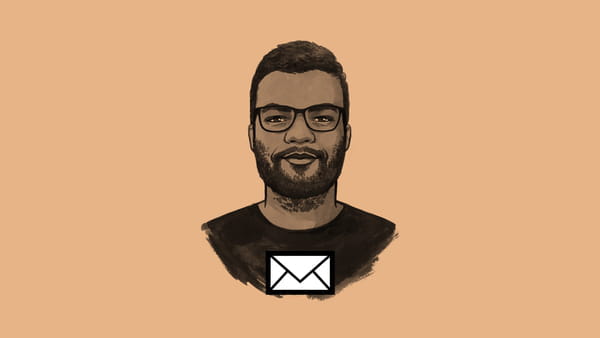Hi,
First things first. I am excited to share with you that I have a new, urgent mission statement for my beat: to chronicle and catalyse the decolonisation of the global mental health movement.
I plan to do this by exploring the marginalisation of low- and middle-income countries in the global mental health movement, and strategies to rectify this. I hope you will support my new mission just as you did with my earlier mission: to establish mental illness as a universal human condition that connects us all.
To kickstart the new project, I published a piece last week on a revolution stirring at the heart of the global mental health movement. You could summarise it as "the (former) colonies strike back" or "the subaltern speaks".
The trigger for my piece was an unlikely alliance between two mental health researchers – from Ethiopia and India – that challenged the longstanding hegemony in global mental health. For its grandiose name, the movement has been dominated by an exclusive club of academics, practitioners, and funders from rich western countries. Low- and middle-income countries and people with actual lived experience of mental illness – the intended beneficiaries of the movement – have been left out in the cold. So in many ways, the global mental health movement has become exactly what it promised to upend: a neocolonial echo-chamber.
Enough, said Maji Hailemariam and Soumitra Pathare in their pugnacious comment in The Lancet Psychiatry, which I deconstructed in my piece. (PS: Hailemariam and Pathare broke the hidebound conventions of the academia by meeting and developing their collaboration on Twitter. What can be a better metaphor for 2020?)
Below, you will find six other brilliant, not-too-long pieces by some of the foremost academics and activists in the world who have been relentlessly fighting to democratise the global mental health movement. The best part is, they are written in plain English and not PhD-speak. I do hope you will take the time to read these articles, which will also help clarify the context in which my new mission is situated.
Here you go:
1. There’s no better place to begin than Madhukar Pai and Seye Abimbola’s goosebump-inducing piece ‘Will global health survive its decolonisation?’, filled with quotable lines like this:
"Global health must free itself from the persisting blindness of supremacy and embrace its alternative – equity and justice."
2. For a change of taste, move on to Desmond Jumbam’s biting satire on how not to write about global health. Jumbam’s piece is a ringing slap on the face of neo-colonialism in the sector, with gems such as:
"Do not spend too much time studying the historical, cultural, anthropological, political and sociological contexts. Don’t bother with trying to understand the complex intricacies and relationships between these and health. This will take too much time and will just delay the good work that you can do to help the country or community."
3. Next, this article by Sarah Dalglish on how Covid-19 exposed the glaring problems with the current hierarchy in global health. She writes:
"Global health will never be the same after COVID-19 – it can’t be. The pandemic has given the lie to the notion that expertise is best channelled by legacy powers and historically rich states."
4. The only non-article on this list is this Mad In America podcast where China T Mills talks about her personal motivation to investigate the inequalities in global mental health. I love the title: ‘The hypocrisy of mental health in the age of austerity’. Do give it a listen.
5. Bookmark this deep-dive report on global mental health research funding by the International Alliance of Mental Health Research Funders, which makes revelations such as:
"Despite accounting for 84% of the world’s population only 2.4% of funding is spent on examining mental health in low and middle income countries."
6. Finally, Rochelle Burgess’s piece on why hunger and homelessness and unemployment are the real enemy of mental health. I couldn’t agree more with her when she says this about the response needed from the world after the pandemic: "Let’s not limit our efforts to anxiety-management apps. They are not enough to stem the coming tide of despair."
Let me know how you liked this reading list, and do share your favourites via email or in the contribution section under this newsletter.
Until next week.
 Would you like this newsletter sent straight to your inbox?
Subscribe to my weekly newsletter where I dismantle myths around Sanity, discuss the best ideas from our members, and share updates on my journalism.
Would you like this newsletter sent straight to your inbox?
Subscribe to my weekly newsletter where I dismantle myths around Sanity, discuss the best ideas from our members, and share updates on my journalism.

